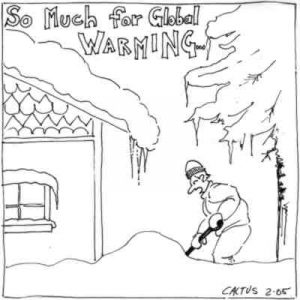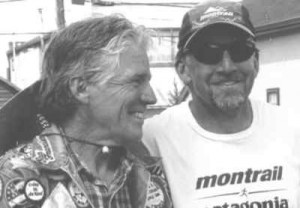Review by Ed Quillen
Western History – February 2005 – Colorado Central Magazine
Western Lives – A Biographical History of the American West
Edited by Richard W. Etulain
Published in 2004 by University of New Mexico Press
ISBN 0-8263-3472-5
IN 1839, THE British historian and essayist Thomas Carlyle observed that “The history of the world is but the biography of great men.” In more recent times, historians have generally moved their focus from the “great lives” method to “social history” that explains how everyday people lived in the past.
By and large, that’s an improvement. After all, we’re curious about how our ancestors lived, and most of us do not boast distinguished pedigrees. And the daily stuff can be fascinating — my favorite part of one of Samuel Eliot Morison’s books about Columbus is his detailed description of a normal day on a ship as the sailors go about their work, from pumping the bilge to climbing the masts.
But one result of this shift in focus is that we don’t see as much biography as we used to, which makes this new book especially welcome.
It’s an anthology with 15 contributors, all specialists in their fields, contributing biographical pieces, usually about two people and their times, as with Glenda Riley’s essay “Buffalo Bill Cody and Anny Oakley: Romancing the West.”
Western Lives covers plenty of time — the first piece starts in 1683, and the last one is about Microsoft co-founder Paul Allen, a multi-billionaire who remains in his Seattle birthplace, a “loyalty to home [that] raises the issue of regional distinctiveness as a counterbalance to global placelessness.”
It also stretches the West clear to the West Coast, and my regional bigotry defines the West as pretty much the Mountain Time Zone.
But never mind. These pieces are all quite smooth and readable, a pleasant surprise for a work written by academics and copiously footnoted. Some of their subjects are fairly well known to history buffs: the second chapter, for instance, covers the father and son both named Juan Bautista de Anza, and Lewis and Clark and Stephen F. Austin also appear. Others were obscure, at least to me, like María Amparo Ruiz de Burton (who struggled to preserve her family’s land after the Mexican War) and Sam Brannan (a jack Mormon whose speculation made and lost several fortunes).
The author of the Brannan chapter, Anne F. Hyde, alternates his portrayal with that of Elizabeth Byers, wife of Rocky Mountain News founder William Byers and a successful real-estate investor on her own. That arrangement allows her to examine how Salt Lake City and Denver were similar in some respects, and so different in others.
“Mining offered a poor platform for a permanent conquest of the region. Miners mostly came and went, leaving ghost towns, piles of tailings, and environmental and human ruin in their wake. The puzzle for westerners became how to achieve permanence in a boomtown world. Mormons, on the other hand, started as an insular religious sect that simply wanted to get away from the rest of the United States. They hoped to set down deep roots in a place where they could protect themselves from the corrosive forces of American individualism. In an effort to create a safe place, ironically, they brought tens of thousands of converts who took risks and became successful entrepreneurs — the living image of the American dream.”
Until I read this, I had no idea how important Elizabeth Byers was in making early Denver somewhat civilized, and if I had read about Brannan, I’d forgotten him — and he was one of those grand hustlers and speculators whose careers are fun to read about.
Unlike so many books about the West, Western Lives does not pretend that history ended when the 19th century ended. It has some excellent chapters about the 20th, with subjects ranging from Jeanette Rankin (the Montana Republican and pacifist who voted against both World War I and World War II) to Walt Disney.
In short, this is a book of fascinating biographical essays. They’re probably tilted more to the left (capitalism comes in for plenty of criticism) than some readers would prefer, but the sources are solid and the writing is engaging. It was a pleasure to read, and it’s a book I’ll keep around for quick reference about a wide variety of people who made the West what it is.


